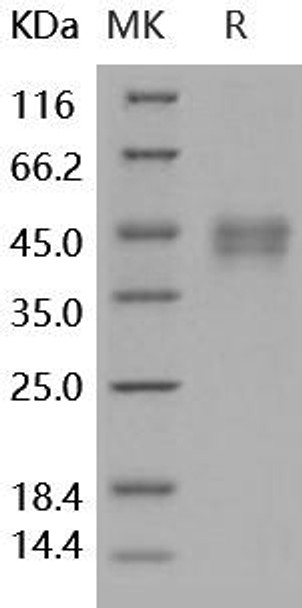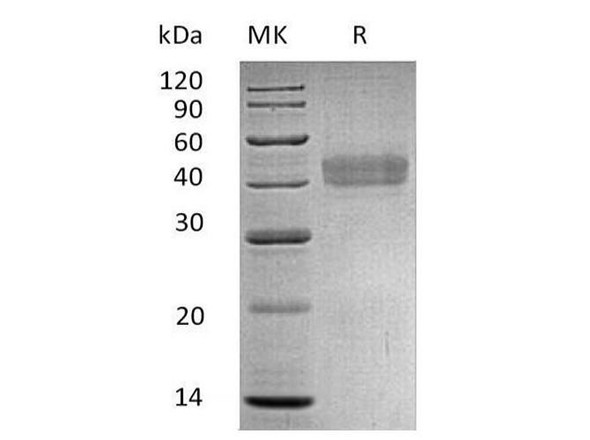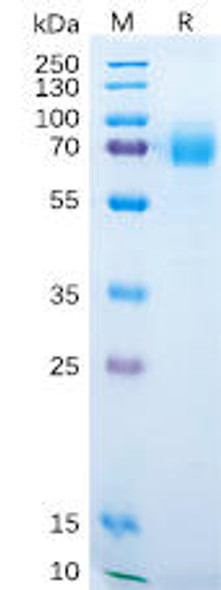Human DKK1/Dkk Recombinant Protein (His Tag) (Active) (RPES0094)
- SKU:
- RPES0094
- Product Type:
- Recombinant Protein
- Species:
- Human
Frequently bought together:
Description
system_update_altDatasheet
Human DKK1/Dkk Recombinant Protein
Dickkopf (DKK) family proteins, consisting of DKK-1, DKK-2, DKK-3 and DKK-4, function as secreted Wnt antagonists by inhibiting Wnt coreceptors LRP5/6. DKK-1, DKK-2, and DKK-4 also bind cell surface Kremen-1 or Kremen-2 and promote the internalization of LRP5/6. Dickkopf related protein 1 (DKK-1) was initially identified as an inducer of head formation in Xenopus embryos. DKK-1 protein modulates Wnt signaling pathway during embryonic development. Increased levels of DKK-1 are found in the majority of lung cancers, esophageal squamous cell carcinomas, and hormone-resistant breast cancers, while DKK-1 expression is decreased in malignant melanoma and colorectal cancers.
| Product Name: | Human DKK1/Dkk Recombinant Protein (RPES0094) |
| Product Code: | RPES0094 |
| Size: | 20µg |
| Species: | Human |
| Expressed Host: | HEK293 Cells |
| Synonyms: | Dickkopf-related protein 1,Dickkopf-1,Dkk-1,SK |
| Accession: | NP_036374.1 |
| Sequence: | Met 2-His 266 |
| Fusion tag: | C-His |
| Activity: | Measured by its ability to inhibit Wnt3a-induced alkaline phosphatase production by C3H10T1/2 cells. The ED50 for this effect is approximately 0.1-0.4 µg/ml in the presence of 10 ng/mL of mouse Wnt3a. |
| Endotoxin: | <1.0 EU per µg as determined by the LAL method. |
| Protein Construction: | A DNA sequence encoding the human DKK1 precursor (NP_036374.1) (Met 2-His 266) was expressed with a C-terminal polyhistidine tag. |
| Purity: | > 90 % as determined by reducing SDS-PAGE. |
| Mol Mass: | 25.8 kDa |
| AP Mol Mass: | 45 kDa |
| Formulation: | Lyophilized from sterile PBS, pH 7.4 |
| Shipping: | This product is provided as lyophilized powder which is shipped with ice packs. |
| Stability and Storage: | Lyophilized proteins are stable for up to 12 months when stored at -20 to -80°C. Reconstituted protein solution can be stored at 4-8°C for 2-7 days. Aliquots of reconstituted samples are stable at < -20°C for 3 months. |






